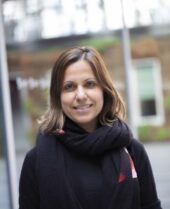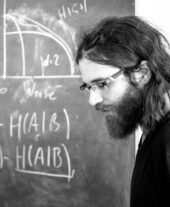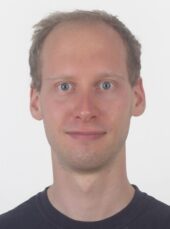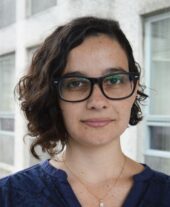ML4Q Concepts
Series #5: Quantum Communication
The fifth ML4Q Concepts seminar series on quantum communication is organized by Anne Matthies, PhD student from University of Cologne.
The seminars will be online, via zoom. The Zoom link will be sent via the cluster’s mailing lists. If you are not affiliated with ML4Q but would like to participate, please drop a line to the ML4Q office. Suggestions for topics/speaker for follow-up seminar series are always welcome via our (ML4Q-internal) Slack workspace!
Seminar schedule

10 November 2022, 11:00
Eleni Diamanti (CNRS, Sorbonne Université)
Communication in a quantum world
Quantum technologies have the potential to improve in an unprecedented way the security and efficiency of communications in network infrastructures. We discuss the current landscape in quantum communication and cryptography, and focus in particular on recent photonic implementations, using encoding in discrete or continuous properties of light, of central quantum network protocols, enabling for instance secret key distribution, verification of multiparty entanglement and transactions of quantum money, with security guarantees impossible to achieve with only classical resources. We also describe current challenges in this field and our efforts towards the miniaturization of the developed photonic systems, their integration into telecommunication network infrastructures, including with satellite links, as well as the practical demonstration of novel protocols featuring a quantum advantage for a wide range of tasks. These advances enrich the resources and applications of the emerging quantum networks that will play a central role in the context of future global-scale quantum-safe communications.

24 November, 11:00
Markus Huber (IQOQI Vienna, ÖAW)
High-dimensional entanglement for quantum communication
Entanglement unlocks many applications in quantum communication, such as the highest possible level of security in quantum key distribution. As photons are inevitably lost or decohered over longer distances, it seems obvious that using the full spectrum of photonic degrees of freedom is desirable. In addition to more encodable bits per photon, entanglement in high dimensions also yields a surprising resistance to noise. This comes at the expense of more complicated measurements that in themselves can contribute to the overall noise in the data, leading to an interesting optimisation. While random, noisy entanglement may not always be useful or need unrealistic control to be harnessed, I will also present a protocol that can be used in high-dimensional systems, even with restricted measurement possibilities, which has recently been successfully employed in path and energy-time experiments.

1 December 2022, 16:00
Filip Rozpędek (University of Chicago)
Quantum Repeaters for Quantum Communication

15 December 2022, 11:00
Glaucia Murta (HHU Düsseldorf)